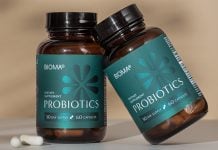
Moderate Wine Consumption Can be Good for You
You’ve probably heard that a glass of wine a day can be good for you, but why exactly? Is a bottle just as good as a glass? 🙂 Check out this article which dives into the details about why exactly wine (in moderation of course) can be great for your heart!
A glass of Wine and Your Health
If you are one of those people who are well aware of the fact that wine is beneficial to health and well-being but you’re not really sure what those benefits exactly are, then you are at the right place.
For millennia, wine has been ever-present as a cure for many illnesses, including sinus problems, dementia, lethargy, and diarrhea, promoted as a safe alternative to drinking water and even used for alleviating pain at childbirth. Wine has come a long way since ancient times, as many modern studies have proved its worth.
This article will provide you with a brief guide through some of the numerous health benefits a glass of wine a day can provide.
Moderate consumption
Perhaps the most important detail when discussing the health benefits of wine is that it should be consumed in moderation. A general recommendation is to drink a maximum of two glasses for men and one glass for women a day.
Drink more than two glasses a day and the benefits start to diminish or even turn into a hazard as the influence of alcohol prevails over the influence of resveratrol (more on that below).
Healthy Heart
One of the first things that come to mind when speaking about the beneficial effects of wine is its influence on heart health.
Wine is rich in various antioxidants called polyphenols and one of the polyphenols called “resveratrol” is considered the strongest influencing factor when it comes to health benefits.
Among a host of other beneficial effects, resveratrol fights the ‘bad’ cholesterol (LDL) and raises the ‘good’ cholesterol, or high-density lipoprotein (HDL).
In layman’s terms, it means that it reduces the formation of blood clots and promotes good health of arteries. This is a result of the anticoagulant properties of alcohol in wine which enable a better passage of oxygen and create a less ‘sticky’ environment for platelets in the blood.
It’s worth mentioning that resveratrol is also found in blueberries, cranberries, and nuts, and that red wine has a bit more resveratrol than white because of different processing methods (resveratrol comes from grape skin, and white wine is made without the skin).
Simply drinking grape juice or eating grapes has been proposed as an alternative to ingesting resveratrol without alcohol.
 Cancer prevention
Cancer prevention
Several studies on animals have suggested that wine lowers the risk of many cancers, some of which include breast, prostate, skin, lung, and ovarian cancers.
Resveratrol has been proven as effective in reducing and inhibiting the growth of many types of cancer cells and also in reducing inflammation. Studies on humans are still in the early stages but there are already many factors that indicate the beneficial effects.
Even though alcohol itself is regarded as a factor that increases the risk of some cancers, the case of wine is somewhat peculiar due to its nonalcoholic components like resveratrol.
Anti-aging properties
In a recent study at Harvard Medical School, researchers led by David Sinclair found that “resveratrol improved the health of mice on a high-fat diet and increased life span.”
This was the first time wine’s anti-aging properties and SIRT1 gene have been linked with conclusive evidence. Again, it all comes down to the effects of resveratrol and other polyphenols which circulate the blood vessels and remove free radicals and impurities while improving the flow of oxygen throughout the body.
While promoting heart health and preventing cancer is probably most striking, some of the other benefits of wine worth mentioning are that it also prevents the occurrence of type-2 diabetes, helps protect from severe sunburn, prevents blinding diseases, improves lung function, and help prevent lung cancer.
For more topics about wines online please visit Sokolin Wines.
Wrap-Up
While there are still many studies that need to be done to fully understand the benefits of resveratrol and wine, some strongly suggest that we are yet to discover its full potential.
For now, it is important to remember that moderation is key and that we should never go overboard on the recommended dosage.
Enjoy your wine responsibly and you will surely live a healthier life.
Here’s another article on exactly why wine can be good for you: Mayo Clinic
- Why Is A Glass Of Wine A Day Good For You? - April 10, 2015
 Cancer prevention
Cancer prevention

